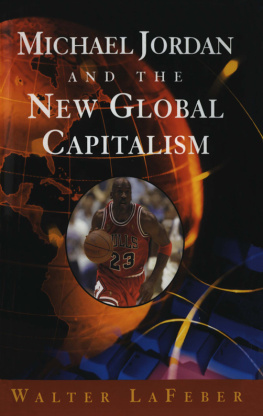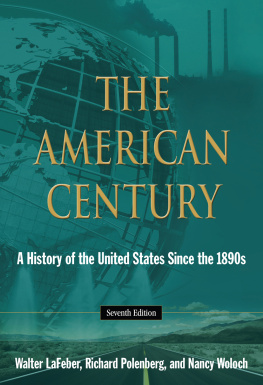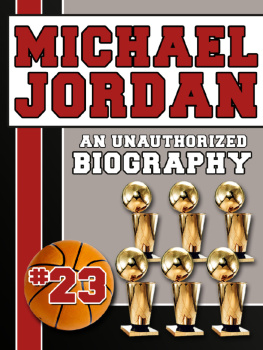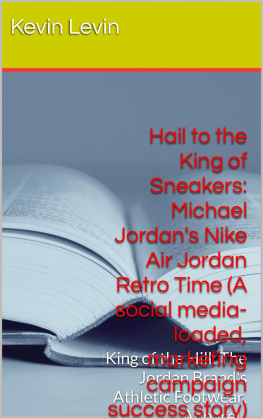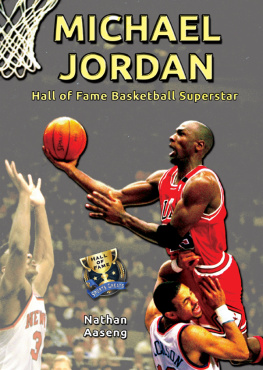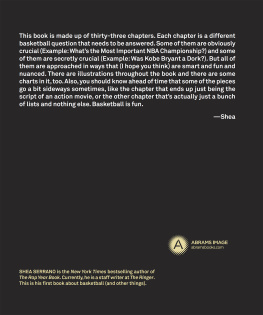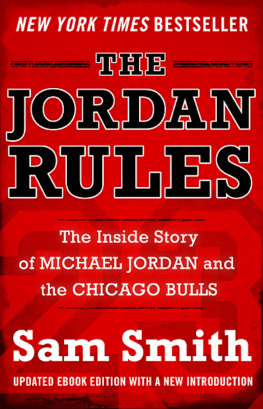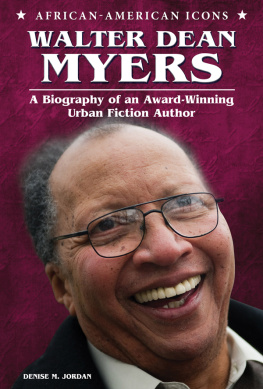Michael Jordan
and the
New
Global Capitalism
The Clash: U.S.-Japanese Relations throughout History
The American Age: U.S. Foreign Policy at Home and Abroad since 1750
Inevitable Revolutions: The United States in Central America
America, Russia, and the Cold War, 19451996
The American Search for Opportunity, 18651913
The New Empire: An Interpretation of American Expansion, 18601898
The Panama Canal: The Crisis in Historical Perspective

This book is for
Matthew and Trevor Kahl
Contents
You have spoken in jest about New York as the Capital of Culture but in 25 years it will be just as London is now. Culture follows money and all the refinements of aestheticism cant stave off its change of seat. We will be the Romans in the next generations as the English are now.
F. SCOTT FITZGERALD to Edmund Wilson, 1921
Now the experience of sports is everywhere. Its all-encompassing, and instantaneous. Its right there beside you from cradle to grave the culture of the world.
PHIL KNIGHT,
founder and Chief Executive Officer of Nike, as quoted in Donald Katz, Just Do It: The Nike Spirit in the Corporate World (New York, 1994)
We can have a market economy, but we cannot have a market society.
GEORGE SOROS, 1998
T his is a short book on some large subjects. It argues that the world changed fundamentally in the 1970s and early 1980s. In this sense, the twenty-first century began during those years, for powerful forces that will shape the early part of the new century significantly appeared for the first time. Or, to rephrase, a new era did not begin with the end of the Cold War and the collapse of the Soviet Union between 1989 and 1991, but with the information revolution, the new power of U.S. capital and transnational corporations to drive that revolution, and the reactionsometimes violentin the United States and abroad to that revolution. This new era has been called the information age, and described as post-industrial, post-modern, and even post-imperialist or late capitalist. Whatever it is termed, it marks the beginning of something different in world history.
At its end, this book briefly speculates on the meaning of the story in the long history of imperialism, including the rise of what has come to be known as cultural imperialism. It also touches on the question of whether U.S. exploitation of the new information age, so well exemplified by Michael Jordans successes, will lead to a better twenty-first century or, as some believe, a bloody clash of cultures and civilizations.
The analysis uses the sport of basketball to begin examining these subjects. Why basketball? Because with the help of new media the marketing of basketball has become an important fixture in global as well as American culture. Because some of the pioneering transnational corporations are exploiting American sports so profitably and with far-reaching social consequences. Because basketball has attracted both women and men as players as well as spectators since the game first appeared in 1891. And because basketball produced Michael Jordan.
This account assumes that the importance of U.S. foreign relations diminished not at all with the Cold Wars end after 1989. The nations overseas influence and power has only become more fascinatingcontrary to what some of the more parochial members of the U.S. Congress, some academic departments, and a few publishing houses may believeand it has become vastly more important for new generations of Americans to understand this.
Just how far that influence reached became clear to Max Perelman, a young American college student, when he traveled through remote regions of China in January 1997. While stranded by winter weather in west Sichuan, a long fifteen hundred miles from Beijing, he encountered a group of Tibetans bound for their capital, Lhasa. The Tibetans, Perelman recalled, had never strayed far from their native village. They had apparently not seen anything like his camera. As they shared with him bites of meat from the raw, bloody, rib cage of an unspecified animal retrieved from their rucksacks, the group began to discuss things American. Just how, one of the Tibetans asked the young American, was Michael Jordan doing?
How these travelers knew about the Chicago Bulls star was never made clear. That they knew about him, however, was perhaps not surprising. He was the most famous athlete and one of the most recognizable people in the world. Jordan and his Red Oxen, as his team was known in much of Asia, had gained renown for their basketball championships. But Jordan was especially famous for another reason: he was the superhuman who flew through the air in television advertisements as he endlessly and effortlessly dunked basketballs and, simultaneously, sold Nike sneakers. These glamorous advertisements flew about the globe thanks to new technologies such as earth satellites and cable. This communication revolution conveniently appeared for global commercial use just as Jordan was beginning a spectacular basketball career in the 1980s, and as Phil Knight was building Nike into a mighty multibillion-dollar transnational empire that ingeniously marketed its sneakers over the new media. Jordans fame rose to the point that at the 1992 Olympic games he was embarrassed by being asked at a press conference if he were a god. But as Time magazine noted, If Michael Jordan is God, then Phil Knight put him in heaven.
Much of this post-1970s technology was dominated by U.S. empire-builders, notably the flamboyant Ted Turner. He had sunk the family fortune into the emerging business of cable television and communication satellites, only to go nearly bankrupt in the early 1980s. Not long after, however, he built CNN (Cable News Network) into an international as well as American powerhouse. Indeed, the network became so international that Turner outlawed the use of the word foreign in its broadcasts. Nothing was foreign to CNN. In 1997, Turner stunned the world by giving one billion dollars over a ten-year period to the United Nations to help its international humanitarian programs. It stood to reason that he gave this incredible gift to the UN instead of to, say, his home city of Atlanta, Georgia. CNN, like Nike and Michael Jordan, had burst beyond mere city boundaries to become a global institutionand had grown rich by moving far beyond U.S. borders to create a worldwide marketplace.
Jordans role in this growing Americanization of global media was profound. As noted in the following chapters, he became a part of the heated argument over whether African-American athletes increasingly dominated basketball and many other sports because they were physically different from and superior to whites, or because they concentrated on these sports due to racism since other careers were closed to them. And eventually, Jordan became a figure who often transcended race. Black social critic Stanley Crouch observed that in 1960, if white girls in the suburbs had had posters of a Negro that dark on the wall, there would have been hell to pay. That kind of racial paranoia is not true of the country now. Today you have girls who are Michael Jordan fanatics, and their parents dont care.
The immense success of Jordan and the National Basketball Association (NBA) has also helped shape the role of women in professional sports. The combination of talented and imaginative female athletes who appeared in the 1970s and 1980s, simultaneously with the growing popularity of basketball created by NBA marketing techniques and new media coverage, has led to the creation of professional womens leagues and lucrative endorsement contracts for a few of their stars. As noted in chapter 1, women were playing basketball within weeks after the game was invented in 1891. In 1973 the U.S. government passed Title IX, a historic step that required equal facilities for mens and womens sports at institutions receiving federal funds.

